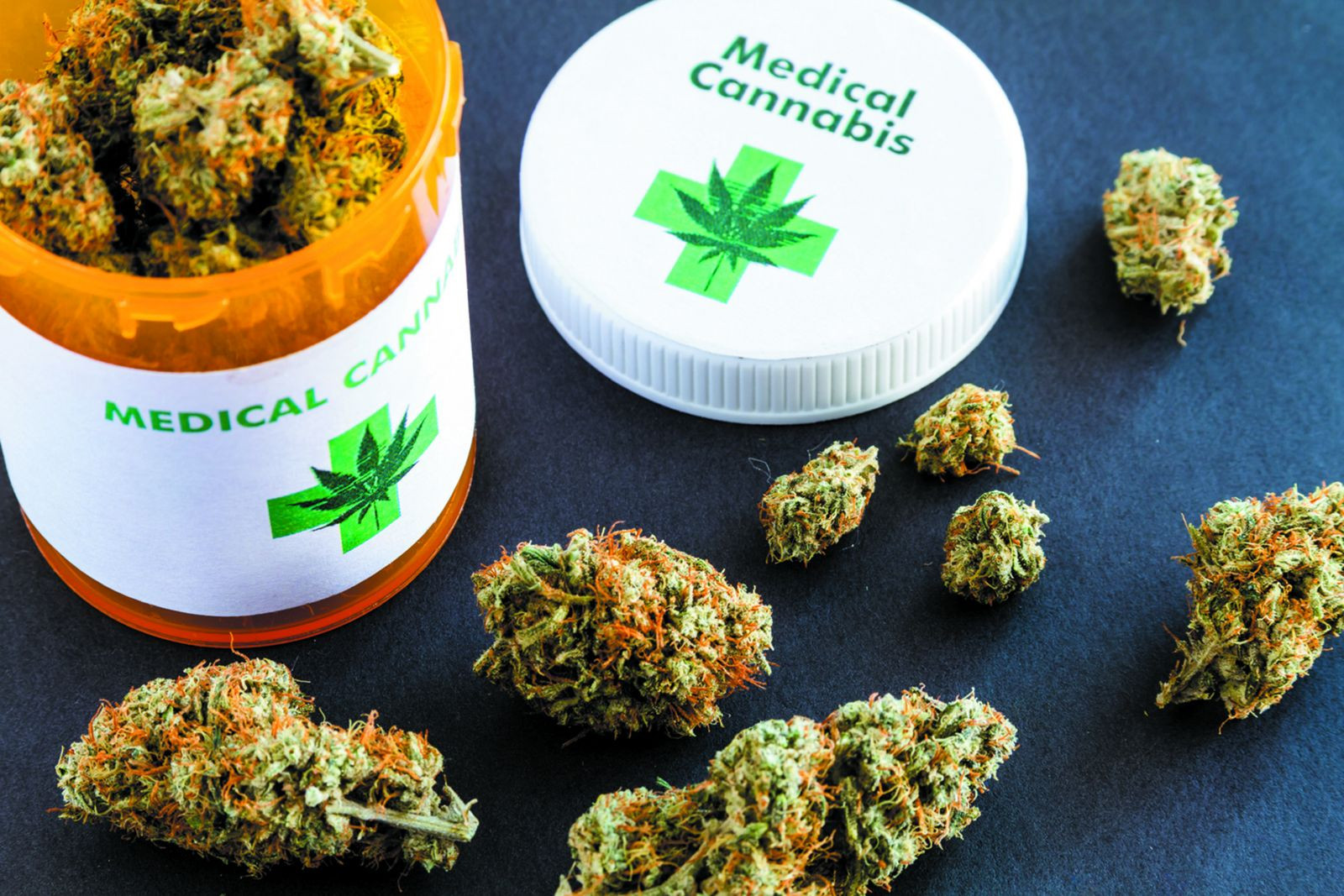Arranging an Appointment with a Licensed Kentucky Medical Marijuana Doctor
Arranging an Appointment with a Licensed Kentucky Medical Marijuana Doctor
Blog Article
Understanding the Lawful Landscape Surrounding Medical Cannabis Worldwide
You're likely conscious that mindsets in the direction of clinical cannabis are moving worldwide, yet the legal structures can be complicated. Some nations have actually embraced it, while others stay purely opposed. Comprehending these distinctions is essential, particularly as person demands and public perceptions progress. What drives these differences, and exactly how do they influence accessibility for individuals looking for alleviation? The answers may amaze you.
Historic Context of Clinical Cannabis Legislation
As you check out the historical context of medical cannabis regulations, you'll uncover that its origins extend back thousands of years. Ancient cultures, from the Chinese to the Greeks, recognized cannabis for its medicinal properties. In 2737 BC, Chinese Emperor Shen Nong documented its use for various ailments. By the first century advertisement, Dioscorides, a Greek physician, consisted of marijuana in his pharmacopoeia, highlighting its efficiency in treating pain and inflammation.
Rapid forward to the 19th century, when Western medication started to welcome marijuana extra extensively. Medical professionals suggested it for whatever from migraines to labor pains. The early 20th century saw a shift, as social perceptions transformed, leading to more stringent policies and stigmatization.
Comprehending this abundant history aids you appreciate the intricacies of modern medical cannabis laws. It's a trip with time that discloses the advancing relationship in between culture and this powerful plant.
Existing Legal Standing by Region

North America Introduction
Guiding through the landscape of medical marijuana regulations in North America reveals a patchwork of regulations that differ considerably by region. In the United States, some states have fully embraced clinical marijuana, permitting individuals accessibility with dispensaries, while others maintain strict prohibitions. Maneuvering through these diverse laws can be difficult, as each jurisdiction has its own needs for obtaining medical marijuana, consisting of certifying conditions and application processes.
Europe's Diverse Regulations
Guiding through the lawful landscape of medical marijuana in Europe can be complex, provided the substantial variations in laws across different nations. In some nations, like Germany and Italy, medical marijuana is legal and easily accessible with a prescription. As you explore these diverse laws, it is vital to remain informed, as legislations can change quickly and differ greatly from one country to an additional.
Asia-Pacific Legal Trends
The Asia-Pacific region showcases a quickly evolving landscape for medical cannabis legislations, showing a mix of progressive and conventional strategies. Countries like Australia and New Zealand have embraced legalization, using controlled accessibility to medical cannabis. In Australia, clients can acquire prescriptions, while New Zealand lately passed a referendum to allow medical use.
On the other hand, nations like Japan and South Korea keep more stringent laws, permitting just restricted access to cannabis-derived items. In spite of these restrictions, popular opinion is changing, with raising phone calls for reform.
As you browse this complex landscape, remain informed concerning local regulations, as they can differ substantially from one nation to an additional, influencing client access and sector development in the area.
Trick Nations Blazing A Trail in Clinical Marijuana
As you check out the landscape of medical cannabis, you'll locate several countries establishing impressive legalization landmarks. These countries not only establish regulatory structures that ensure risk-free gain access to however also blaze a trail in clinical research study innovations. Understanding their approaches will certainly provide you important insights right into the future of cannabis use in medical care.
Legalization Turning Points Achieved
While many countries grapple with the intricacies of marijuana law, numerous have made substantial strides in legalizing clinical marijuana, establishing vital criteria. copyright became a pioneer in 2001, enabling individuals accessibility to clinical marijuana, leading the way for other countries. In the United States, numerous states have legislated clinical cannabis, creating a jumble of regulations that influence public perception and policy.
Regulatory Structures Clarified
Comprehending the regulative frameworks regulating clinical marijuana is crucial for understanding exactly how various countries approach its use. The United States offers a patchwork of laws, with states like The golden state and Colorado leading in modern plans, yet federal laws still create difficulties. By acquainting on your own with these frameworks, you can better comprehend the international landscape of clinical marijuana.
Medical Study Improvements
Countries around the world are making considerable strides in medical cannabis research study, leading to a far better understanding of its healing possibility. In the United States, institutions like the National Institutes of Health And Wellness (NIH) are funding research studies on marijuana's impacts on persistent pain and epilepsy. As these nations push ahead, you'll witness an advancement in clinical methods and a more clear image of just how marijuana can improve client end results internationally.
Obstacles and difficulties to Gain access to
Accessing medical cannabis can be filled with obstacles that originate from differing state regulations and laws. You might locate that in some states, the procedure to obtain a clinical cannabis card is challenging and prolonged, requiring considerable paperwork or assessments with authorized doctor. Additionally, even if you certify, the number of dispensaries can be limited, making it challenging to locate a neighboring resource.
Preconception surrounding cannabis use can additionally create obstacles, as some doctor may be reluctant to review or recommend it. Insurance policy coverage for medical marijuana is often lacking, compeling you to pay out-of-pocket. Finally, in countries where marijuana remains illegal, the risks of legal consequences can hinder patients from looking for the therapy they need. Steering via this facility landscape can feel overwhelming, but comprehending these challenges is essential for any individual taking into advice consideration medical marijuana as a restorative alternative.
Influence of Clinical Marijuana on Wellness Outcomes
While several people remain cynical about marijuana, study progressively shows its prospective benefits for various health problems. You may be shocked to discover that medical marijuana can assist reduce persistent pain, decrease swelling, and take care of signs and symptoms of stress and anxiety and anxiety (Kentucky Medical Cannabis Doctor). For individuals fighting conditions like epilepsy or numerous sclerosis, marijuana has demonstrated considerable therapeutic results, using relief when conventional therapies fail
Moreover, researches suggest that some components of marijuana, such as CBD, can boost overall high quality of life for clients undergoing therapies like chemotherapy. It's vital to think about that individual feedbacks to cannabis can differ widely, so what benefit one person might not benefit an additional. As you discover the potential influence of medical marijuana on health results, keep an open mind and consult with medical care professionals to customize a therapy plan that fits your unique requirements and circumstances.
The Function of Health Care Providers in Patient Accessibility
As you navigate the intricacies of clinical cannabis regulations, it is necessary to recognize the essential Your Domain Name role health care carriers play in individual gain access to. These specialists work as vital overviews, aiding clients understand their alternatives and browse legal demands. They can analyze whether medical cannabis is suitable for your problem and give documentation needed for legal access.
Moreover, healthcare service providers usually enlighten clients concerning the potential advantages and risks of cannabis use, making sure educated choices. They can advise proper strains, dosages, and methods of consumption tailored to individual requirements. Their assistance is necessary, specifically in areas where regulations differ considerably.

Future Trends and Forecasts for Medical Cannabis Laws
Health care providers will continue to shape the landscape of medical cannabis legislations as they promote for individual demands and engage with policymakers. You can anticipate an expanding fad in the direction of even more inclusive regulation that best site recognizes the restorative advantages of cannabis. As research expands, even more nations will likely take on laws that facilitate access for people struggling with different conditions.
Public opinion is shifting, also, with raising approval leading the means for reform - Kentucky Medical Cannabis Doctor. You may see an increase in medical marijuana programs customized to certain demographics, such as professionals and senior citizens
In addition, as health care systems integrate marijuana into treatment procedures, insurance companies might start covering cannabis-related expenditures, even more legitimizing its usage.
Ultimately, international partnerships might arise, leading to standard laws and quality assurance procedures. On the whole, the future of medical marijuana regulations shows up dynamic and encouraging, driven by proof, campaigning for, and patient-centered care.
Regularly Asked Questions
Exactly How Do International Treaties Affect Medical Cannabis Regulations?
International treaties can form your nation's clinical marijuana regulations by establishing standards or limitations. When nations stick to these contracts, it often influences neighborhood regulation, making it crucial for you to stay educated on changes.
What Are the Lawful Age Demands for Clinical Cannabis Use?
The legal age for clinical cannabis usage differs by territory. In many locations, you should be at the very least 18, yet some permit minors with parental approval. Always examine neighborhood regulations before continuing with clinical cannabis.
Can Employers Fire Employees for Medical Cannabis Use?
Yes, employers can discharge you for clinical cannabis usage, depending upon state regulations and company plans. If your job calls for medication testing or if marijuana influences your efficiency, they may take action. Always examine your work environment policies.
Exist Constraints on Clinical Cannabis Marketing?
Yes, there are restrictions on medical cannabis advertising and marketing. You'll find policies differ by jurisdiction, often restricting deceptive claims and requiring details health cautions. It's vital to examine neighborhood regulations to ensure conformity prior to advertising.
Just How Do Medical Marijuana Laws Differ for Veterans?
Clinical cannabis regulations for veterans frequently consist of unique stipulations, allowing simpler accessibility or advantages. Some states focus on experienced requirements, while others may limit use. It's critical to examine your local policies for specifics.
While many countries grapple with the complexities of cannabis regulation, a number of have made substantial strides in legislating medical cannabis, establishing crucial criteria. In the United States, numerous states have actually legalized medical marijuana, producing a jumble of regulations that affect public perception and plan.Accessing medical marijuana can be filled with challenges that stem from differing state laws and guidelines.As you browse the complexities of medical cannabis legislations, it is necessary to recognize the crucial duty health care companies play in patient access.Healthcare companies will certainly proceed to shape the landscape of medical cannabis regulations as they support for client requirements and involve with policymakers.
Report this page